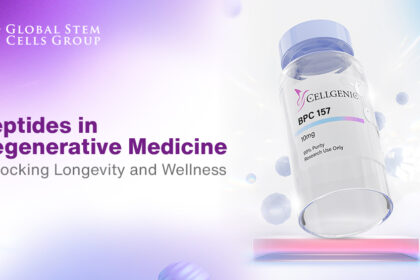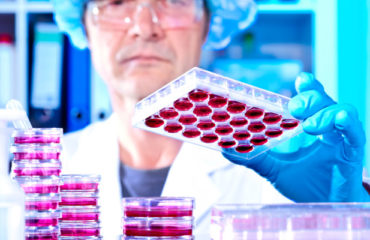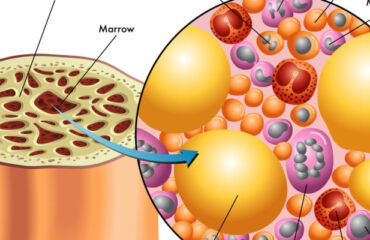
Regenerative medicine is an evolving field that leverages the body’s ability to heal and regenerate itself. Among the various tools in regenerative medicine, peptides have gained significant attention for their potential to promote tissue repair and enhance overall health. This article delves into the role of peptides in regenerative medicine, their benefits, and their applications.
What Are Peptides?
Peptides are short chains of amino acids, which are the building blocks of proteins. They are naturally occurring in the body and play crucial roles in various physiological processes, including hormone production, immune function, and tissue repair. Unlike proteins, peptides are smaller and can penetrate cells more easily, making them highly effective in targeted therapies.
How Peptides Work in Regenerative Medicine
Peptides work by signaling cells to perform specific functions. In regenerative medicine, peptides can promote cell growth, stimulate collagen production, reduce inflammation, and enhance wound healing. These properties make them invaluable in treating various conditions, from skin injuries to degenerative diseases.
Types of Peptides Used in Regenerative Medicine
- Growth Hormone Releasing Peptides (GHRPs): These peptides stimulate the release of growth hormone, which is essential for tissue repair and regeneration.
- Thymosin Beta-4 (TB-500): Known for its wound healing properties, TB-500 can accelerate recovery from injuries and reduce inflammation.
- BPC-157: Derived from a protein in the stomach, BPC-157 promotes healing of muscles, tendons, and ligaments.
- Collagen Peptides: These peptides support skin elasticity and joint health by boosting collagen production.
- GHK-Cu (Copper Peptide): Enhances skin repair, reduces inflammation, and promotes wound healing.
- SS-31: A mitochondrial-targeted peptide that protects cells from oxidative stress and enhances cellular energy.
- MOTS-C: Enhances mitochondrial function, promotes metabolic health, and has anti-aging effects.
- Tesamorelin: Stimulates growth hormone release, improves body composition, and is used in the treatment of lipodystrophy.
- Ipamorelin: Promotes muscle growth and recovery, with fewer side effects compared to other growth hormone secretagogues.
- Melanotan II: Often used for skin tanning, it also has benefits for sexual wellness.
- Semaglutide: A peptide used for weight management and type 2 diabetes, known for its ability to suppress appetite.
- Tirzepatide: A dual-action peptide that regulates blood sugar levels and promotes weight loss.
- Epithalon: Known for its potential anti-aging properties, improving sleep quality, and promoting longevity.
Applications of Peptides in Regenerative Medicine
- Wound Healing: Peptides like TB-500, BPC-157, and GHK-Cu are effective in speeding up the healing process of acute and chronic wounds.
- Anti-Aging: Peptides such as collagen peptides, GHK-Cu, and Epithalon can improve skin elasticity, reduce wrinkles, and promote a youthful appearance.
- Muscle and Joint Repair: Athletes and individuals with musculoskeletal injuries can benefit from peptides like TB-500, BPC-157, and Ipamorelin that promote muscle growth and repair.
- Immune Modulation: Certain peptides can modulate the immune system, reducing inflammation and enhancing immune response.
- Sexual Wellness: Peptides like Melanotan II and PT-141 can enhance sexual function and libido.
- Longevity: Peptides such as Epithalon and MOTS-C are being studied for their potential to extend lifespan and improve overall health.
- Beauty: Collagen peptides, GHK-Cu, and other skin-targeting peptides can improve skin texture, elasticity, and hydration.
- Weight Loss: Peptides like Semaglutide, Tirzepatide, CJC-1295, and Ipamorelin can aid in fat loss and improve body composition.
- Metabolic Health: MOTS-C and Tesamorelin help in enhancing metabolic functions and overall energy levels.
Benefits of Peptide Therapy
- Targeted Action: Peptides can be designed to target specific tissues or cells, reducing the risk of side effects.
- Natural and Safe: Since peptides are naturally occurring in the body, they are generally well-tolerated and safe.
- Versatility: Peptides can be used to treat a wide range of conditions, making them versatile tools in regenerative medicine.
- Non-Invasive: Peptide therapy often involves simple injections or topical applications, offering a non-invasive treatment option.
Clinical Evidence and Research
The efficacy of peptides in regenerative medicine is supported by numerous studies. For instance, research has shown that BPC-157 accelerates tendon healing and reduces inflammation in animal models. Similarly, TB-500 has demonstrated potential in promoting cell migration and wound healing. Studies on GHK-Cu indicate its effectiveness in skin repair and reducing inflammation. Epithalon has shown promise in improving sleep quality and promoting longevity. Semaglutide and Tirzepatide have shown promising results in weight management and diabetes treatment.
Future Directions in Peptide Research
The future of peptides in regenerative medicine is promising, with ongoing research exploring new peptides and their applications. Advances in peptide synthesis and delivery methods are expected to enhance their therapeutic potential further.
Conclusion
Peptides represent a powerful tool in the field of regenerative medicine, offering targeted, natural, and versatile treatment options for various conditions. As research continues to unveil their full potential, peptides are set to play a pivotal role in advancing regenerative therapies and improving patient outcomes.




